Narendra D Modi and his party campaigned in these elections uncharacteristically without any big ideas.
Of course, winning each election at all costs could be a big idea as well, observes Shekhar Gupta.
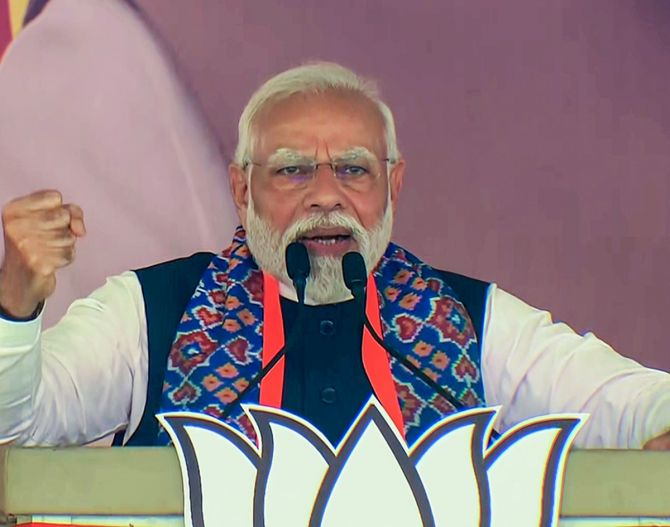
For a quarter-century now, a pattern has emerged in our electoral cycle where three important states go to the polls about six months before the general elections.
While it is tempting and fashionable to call these the semifinals before the big final next summer, it is also erroneous.
As we have known since 2003, these elections usually provide utterly misleading cues about the general elections.
You can, however, often find in these polls bigger ideas that will dominate national politics in the years to follow.
This ongoing campaign, however, has marked the return of a season of small ideas, usually as bad as those we have seen before. Some even worse.
If these go on to define our politics in the general elections and beyond, we are in for dismal times.
Broadly, the bad ideas are subsidies and giveaways on the one hand, and the caste census and enhanced reservations on the other.
I admit that one voter's 'freebie' can be the other's ticket to empowerment, but in our book, the best vehicle to empowerment is economic growth and bold reform. That, however, calls for the kind of patience and calm that doesn't exist in our 24x7 politics.

Just 15 years ago, we were hailing the rise of the aspirational voter after the previous two decades of politics centered around grievance, mostly of identity: Religion and caste.
The first led to the growth in the Bharatiya Janata Party's vote share, while the latter helped Other Backward Class (OBC) parties in the Hindi heartland.
We celebrated the fact that since 2009, India's voters, especially the young, were looking at a better future and voting for it, rather than moaning over the past.
The politics of hope was trumping the politics of revenge, and that was something to celebrate.
It is a long-established trend in Indian politics that the dominant leader defines the issues of the day and the rest build their counter around these.
India is a unique democracy in that it is almost always unipolar. The one dominant party forms that solitary pole and all the rest fight around it.
For a good 60 years after the first election, we lived in the unipolar epoch of the Congress.
All other politics was defined as being against the Congress or the Gandhi family.
At various points in time, the Socialists, the Hindi heartland agrarian parties and the BJP's parent, the Bharatiya Jana Singh, dominated the Opposition, but they never succeeded in building a bigger idea to counter the Congress/Gandhis, or an ideological second pole. Not even when they united as one party, the Janata in 1977.

That period ended with the rise of Narendra D Modi, beginning 2013. Since then, we have stepped into our second unipolar epoch, that of Mr Modi's BJP.
How he defines his politics and policies leads his challengers on to constructing their own counters.
Given that he comes from a sharply defined and documented ideology, it is that much easier for his rivals to respond.
While they may not have much ideological or political coherence among themselves, they can speak in a common voice on one issue: Their definition of secularism versus the BJP's Hinduised version.
Lately, however, most of them have been shy of doing so. A concern over alienating the Hindu voter is evident, and probably understandable.
Whether you vote for him or not, you'd acknowledge that he sets up his own stage and is the master of the set piece.
Modi also sets up the larger issue that defines the contest. Did he do so in these elections? The fact is, the three things that he and his party have been talking about are giveaways, which include subsidies and market-distortionary interventions, and caste and religion-based issues.
The Opposition, which is mostly the Congress in this five-state phase, is also talking about these larger issues, or at least the first two of these three.
Religion is very much a BJP campaign plank and marks all its campaigns.
On caste, Modi's initial reaction was to pour contempt over the Bihar government for releasing the report of its caste census, with Rahul Gandhi leading the clamour for proportionate representation for the backward classes based on their population.
Speaking at a pre-campaign rally on Gandhi Jayanti (October 2) while launching projects worth Rs 19,000 crore at Gwalior in Madhya Pradesh, Modi said, '(The Opposition) back then played with the sentiments of the poor, they are still playing that game. Back then, they divided people in the name of caste and even today, they are committing the same sin.'
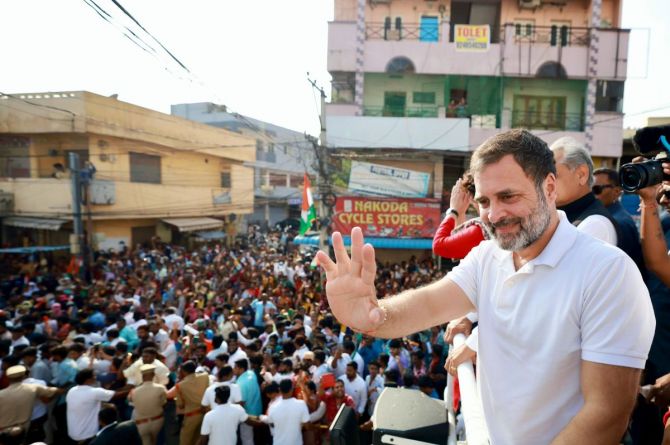
Mr Modi has got off that curb since. In Telangana, he has built a sizable pitch on caste, specifically in focusing on the Madigas, by far the largest section among the Dalits (about 16 per cent of the Telangana electorate).
It is widely believed that Malas -- the other important, though much smaller group, among the Telangana Dalits -- get a much larger share of the benefits.
In effect, he is making a promise no different from that of the caste-based parties: A share of benefits in proportion to your population.
In other campaign speeches in Rajasthan, he has needled Gurjar (Gujjar) voters by reminding them how their leaders, the Pilot family, had been treated 'badly' by the Congress.
The most noticeable change is his approach to giveaways, which he dismissed contemptuously as revdis, first on July 16, 2022.
He hasn't used that expression publicly since April of this year, and his own electoral politics has reversed so fully that his government is now selling subsidised, 'Bharat'-branded atta (wheat flour) to all.
It was probably the setback in Karnataka that shook him and his party. As is the known pattern in our politics, the loser searches for external factors to blame rather than look within.
Otherwise, the BJP would have known they were paying for the disastrous years of governance under their chosen chief minister, Basavaraj S Bommai. They blamed the Congress's giveaways, its 'five promises' instead.
How quickly this BJP responds to electoral cues is evident from how within months of the PM's last public condemnation of the 'revdi culture', his party has built its pitch in the poll-bound states mostly on that basis.
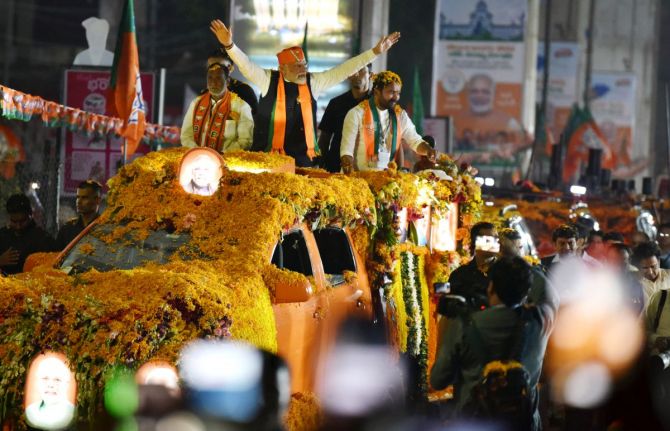
A poster widely used by the BJP in its Rajasthan campaign is headlined 'Modi ki Guarantee' and lists 20 promises, from Rs 2-lakh bond deposits for young women and free scooties to a bonus on the wheat minimum support price, and Rs 1,200 per year for poor students to buy uniforms.
In Madhya Pradesh, his party has already been so psyched by the Congress's doles to women that it has almost fully replicated the idea.
In this race to the bottom, the one note of aspiration we see is the Congress's promise to create a Madhya Pradesh franchise for the IPL.
This, however, marks the first time the BJP has changed its tried, tested, and successful campaign track in response to the Opposition.
That is shown by the evidence on caste as well as what was once derisively called 'revdi culture'.
Modi and his party have campaigned in these elections uncharacteristically without any big ideas. Of course, winning each election at all costs could be a big idea as well.
By special arrangement with ThePrint
Disclaimer: These are Shekhar Gupta's personal views.
Feature Presentation: Rajesh Alva/Rediff.com









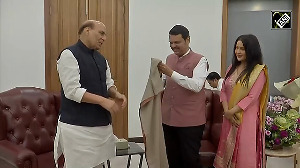

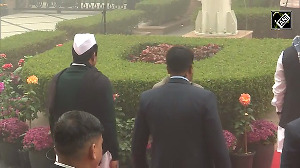
 © 2025
© 2025